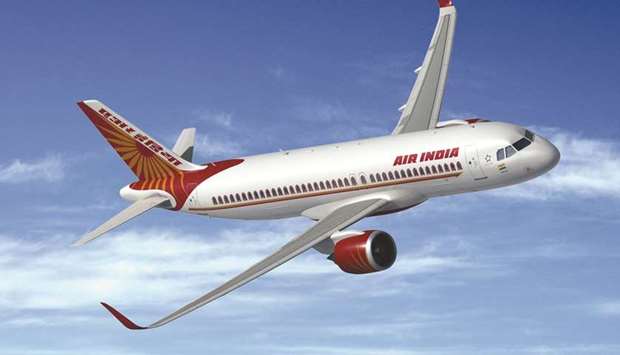The core airline business comprising Air India and Air India Express – the low-cost overseas arm – will be offered as one company, and the process will be completed by the end of 2018, Junior Aviation Minister Jayant Sinha said in an interview yesterday. Its regional arm, ground handling, and engineering operations will also be sold separately in the same process.
A successful sale of Air India – with $7.9bn in debt, five subsidiaries and a joint venture, and a combined workforce of 27,000 – is crucial for Modi, who wants to showcase his credentials as a reformist attempting to steer the state away from running businesses. The airline, which is surviving on a taxpayer-funded bailout, has strained government finances for decades, and Finance Minister Arun Jaitley said last year that money spent on Air India could have been used for education.
“The aviation sector is a very fast growing sector, with really exciting opportunities for all participants, so we felt all of this will unlock growth and competitiveness of Air India group,” Sinha said. “We expect it to be a very bright future for its employees.”
Sinha declined to name potential bidders but said management control will be retained by local investors. The government altered foreign investment rules last week, allowing foreign airlines to own as much as 49% of Air India. Investors’ interest will be sought by end of this month with details on Air India’s core and non-core debt and assets, he added.
The government will add most of the non-core debt owed by the carrier to its own balance sheet, while borrowings linked to core operations will be retained by the unit on offer, Sinha said. A so-called special purpose vehicle will hold the unsustainable debt of the airline and the government is making “every effort” to protect employees.
Air India has been unprofitable since its 2007 merger with state-owned domestic operator Indian Airlines Ltd. The company made an operating profit of about Rs1bn ($15.7mn) in the year through March 2016, primarily due to a slump in oil prices. It still posted a net loss of Rs38.4bn, according to the government.
India, the world’s fastest growing major aviation market, may not sustain the current 15-20% growth in the long term, but will expand at about 12% annually. To handle the surge in passengers, the country will need investments of as much as Rs4tn to expand and build new airports over the next decade-and-a-half, with the bulk of it coming from the private sector.
Air India has been unprofitable since its 2007 merger with state-owned domestic operator Indian Airlines. The company made an operating profit of about Rs1bn ($15.7mn) in the year through March 2016, primarily due to a slump in oil prices. It still posted a net loss of Rs38.4bn, according to the government.

